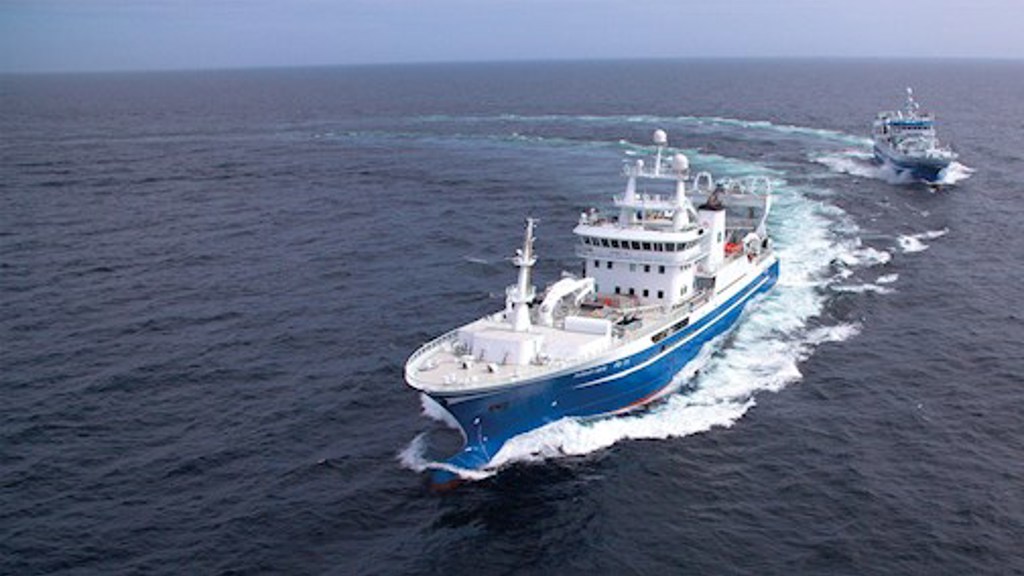
The Government has introduced a bill to parliament, which substantially seeks to reform fisheries policies and the administration of the country’s most vital resource.
The historic reform sets out to promote sustainability and change the way in which fishing licenses are administered. The proposal asserts that marine resources are property of the people of the Faroe Islands and may therefor neither in law nor practice become private property of anyone in the fishing industry. The Government proposes that anyone who seeks to participate in Faroese fisheries must be registered and pay taxes in the Faroe Islands and all crews must be paid in accordance with Faroese collective agreements.
The reform is expected to pass through parliament in July. Fisheries minister, Høgni Hoydal, said the new proposal is a milestone: “The natural resources in the ocean are of utmost importance for the livelihood of the Faroese people. The main aim of the fisheries reform is thus to ensure a sensible and sustainable exploitation as well as to increase the value of the Faroe Islands’ marine resources.”
In 1977, the Faroese fishery limit was extended to 200 nautical miles. The present law regarding industrial fisheries came into effect about 20 years ago. 10 years ago, the Faroese Parliament agreed to terminate the current fishing licenses on January 1, 2018, by which time a new legislation regarding fishing licenses and resource management must be in place.
“Not just the Government, but the entire political system are facing a great responsibility to discuss and pass the new policy,” said Høgni Hoydal.
The reform is based on the following principles:
- All fisheries must be biologically, economically and socially sustainable.
- All living marine resources in Faroese waters, as well as any the Faroes dispose of under agreements negotiated with other countries, remain the property of the people and cannot become the property of private companies or individuals or be sold abroad.
- The legislation prevents private sales of licenses and fishing rights.
- To a greater extent, fishing rights are to be granted in line with the principles of a market-based system.
- Catches and all related products should be landed in the Faroes and, to the greatest extent possible, processed here for added value.
- Only Faroese-owned companies registered in the Faroes, paying taxes in the Faroes and paying their crews in accordance with Faroese collective agreements may seek to participate in Faroese fisheries.
- Provisions to remove foreign ownership from the industry by 2022.
Access and rights to fish
The industry will maintain 75 percent of the quotas for 2018 whilst the remaining 25 percent will be sold at auction as short-term and long-term licenses. This allocation applies when the quotas are at the same level or less than in 2018. When the quotas exceed 2018 levels, the additional amount of the quotas will be auctioned as short-term licenses, or the Parliament may decide how they should be auctioned as short-term or longer-term licenses.
Auction of caught fish and Resource fee
20 percent of caught fish shall be auctioned for Faroese companies through a certified auction. The system shall be reviewed annually. A resource fee will apply to whatever is not auctioned, in order to ensure that whoever has access to fish also contributes to the public revenue.
Limits on concentration (Antitrust)
No individual company will have access to more than 17.5 percent of the total fisheries rights. In addition, specific antitrust limits will be set for the following main fisheries:
- Pelagic fisheries: 20 percent.
- Demersal fisheries in the Faroese zone: 20 percent.
- Fisheries in distant waters: 20 percent.
- Antitrust limits are not retrospective and do not apply to the auction of short term rights
Inspection
Inspection and control, both at sea and on shore, will be significantly strengthened, including in relation to all landings, as well as with regard to monitoring discards at sea. Possible quality control will be associated with this.
